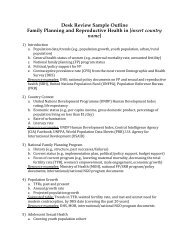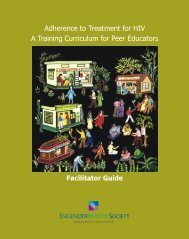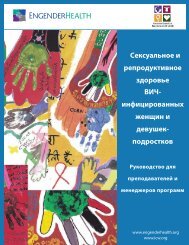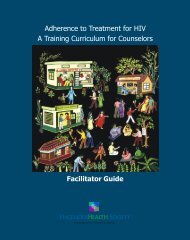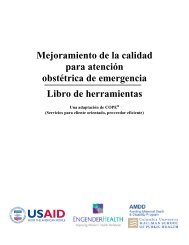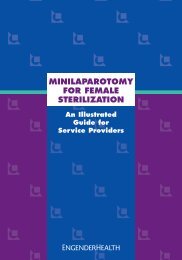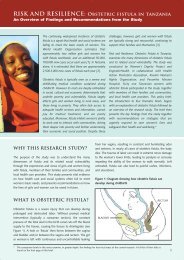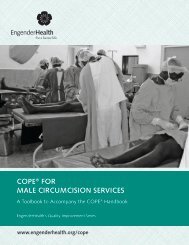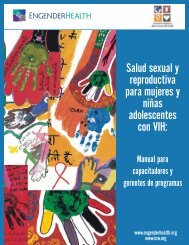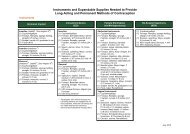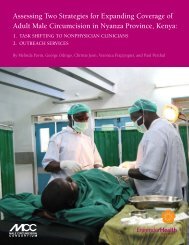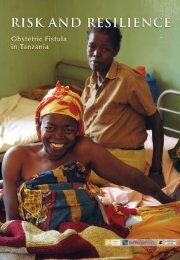Help-Seeking Pathways and Barriers for ... - EngenderHealth
Help-Seeking Pathways and Barriers for ... - EngenderHealth
Help-Seeking Pathways and Barriers for ... - EngenderHealth
Create successful ePaper yourself
Turn your PDF publications into a flip-book with our unique Google optimized e-Paper software.
Civil society organizations<br />
The key barriers to help-seeking that emerged with regards to CSOs were related to<br />
concerns over quality of care <strong>and</strong> the availability of appropriate services. Drop-in centers<br />
<strong>and</strong> shelters in particular were variously criticized, on the one h<strong>and</strong>, <strong>for</strong> violating cultural<br />
norms by sheltering women <strong>and</strong> children, <strong>and</strong>, on the other h<strong>and</strong>, <strong>for</strong> not accepting<br />
survivors on an emergency basis, as described in the two quotes below.<br />
Many NGOs do not have professionals, <strong>and</strong> if they do have [them], they are<br />
inexperienced in a way that may cause conflicts with the community. For example, one<br />
(drop-in center)…they take in a wife <strong>and</strong> children <strong>and</strong> stay with them <strong>for</strong> ten days. This<br />
causes conflicts with a husb<strong>and</strong>.<br />
Service Provider, Iringa<br />
We ask them [survivors] to go to sleep at a relative’s place until the day when going to<br />
the [NGO] arrives, because they also have their own procedures…You cannot just call<br />
[the NGO] <strong>and</strong> in<strong>for</strong>m them that you will be going tomorrow, her own bed <strong>and</strong> food must<br />
be prepared.<br />
Service Provider, Dar es Salaam<br />
CSOs that focus on GBV may not be available, especially in rural areas. Moreover, many<br />
well-known organizations are faith-based <strong>and</strong> exclude women belonging to different<br />
religions. As explained by an FBO staff member:<br />
The marriage we recognize is the one that has been conducted in accordance with<br />
religious principles. But a person living with a woman <strong>for</strong> say 30 years, even if they have<br />
50 children, we do not receive such a couple, we refer them to social welfare where they<br />
are listened to.<br />
Service Provider, Iringa<br />
In sum, the research reveals a large number of socio-cultural <strong>and</strong> structural barriers that<br />
prevent women from seeking support when they experience GBV as well as from receiving<br />
appropriate services <strong>and</strong> care if they do. These barriers are derived in part from powerful<br />
social norms <strong>and</strong> injunctions against discussing what is viewed as a private matter with<br />
people outside of the relationship <strong>and</strong> from an infrastructure <strong>and</strong> network of care that does<br />
not prioritize women’s holistic needs or their rights.<br />
<strong>Help</strong>-<strong>Seeking</strong> <strong>Pathways</strong> <strong>and</strong> <strong>Barriers</strong> <strong>for</strong> Survivors of GBV in Tanzania March 2013<br />
Page 53




